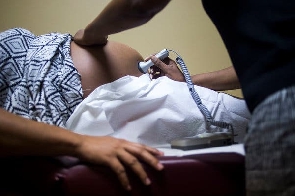According to UNICEF, a woman dies every minute worldwide from complications in pregnancy and childbirth largely due to poor access to health care services, socio-economic factors and postpartum hemorrhage.
Over the years, Ghana has seen a decline in its maternal mortality ratio from 319 per 100,000 live births in 2015 and 263 per 100,000 live births in 2020.
Despite this progress, the reduction has been gradual, and Ghana has fallen short of the sustainable development goal 3.1 target to reduce the global maternal mortality ratio to less than 70 per 100,000 live births by 2030.
Philomena Owusu Domfeh, is a senior midwifery officer at the Greater Accra Regional Hospital and has over the last twelve years of her career, helped to deliver over one thousand babies.
She says, though the gradual decline of maternal mortality in the country is laudable, more gains can be made towards achieving the SDG target.
For Philomena, some religious leaders in Ghana contribute to the number of maternal deaths as they often discourage women from seeking timely healthcare treatment in order to avoid Caesarean sections.
“For some of them, the ultimate is delivering through the vagina which is not the only route of delivering babies. Delivering through the vaginal or abdomen is all very normal, the most important is for both the mother and baby to be healthy,“ she stated.
Philomena painfully recounts how a mother and her twin babies both died after allegedly being told by a pastor to not allow doctors to perform a caesarean section on her.
“All these things give us problems in delivering quality care to the mothers. Some of the pastors even give the pregnant women stickers to put in water to drink. These things must be stopped,” she lamented.
Philomena is calling on relevant stakeholders to ensure these practices are stopped in order to further reduce the country’s maternal mortality rates.
Health News of Wednesday, 13 March 2024
Source: starrfm.com.gh

















